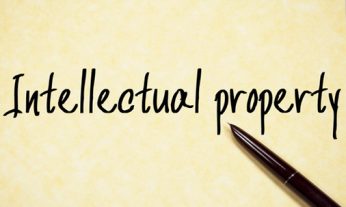 Intellectual property ownership. Let’s say a corporation hires you as an employee or an independent contractor. After completing a number of projects, you decide it is time to move on, and figure you would like to take your ideas with you. After all, none of the new programs, flow charts, and materials you created would exist without you. Your employer, however, believes that the intellectual property belongs to them, as it was created while in their employ. Who is right? An experienced employment attorney may be necessary to unravel those legal answers.
Intellectual property ownership. Let’s say a corporation hires you as an employee or an independent contractor. After completing a number of projects, you decide it is time to move on, and figure you would like to take your ideas with you. After all, none of the new programs, flow charts, and materials you created would exist without you. Your employer, however, believes that the intellectual property belongs to them, as it was created while in their employ. Who is right? An experienced employment attorney may be necessary to unravel those legal answers.
Intellectual Property – Things to Consider
While both you and your employer claim ownership of the intellectual property, your employer will have a stronger claim on these materials if you signed a contract agreeing to as much prior to starting work. These documents, referred to as an assignment of inventions or ownership of discoveries, generally assign the company ownership of all intellectual property created in the course of employment. If such an agreement does not exist, you have a greater claim to your ideas. Your case could be even stronger if you called out specific areas of ownership interest in an employment addendum prior to employment or preceding work on a specific assignment.
Written Contracts
Again, if there is no written agreement outlining specific ownership provisions, you may have a strong case for ownership. If there is a written contract, consider the following:
- Does it assign rights or ownership of intellectual property, copyrights, or trademarks?
- Was it executed prior to employment or later? If later, were you offered additional compensation or consideration in exchange for giving up ownership?
- Were you, as a prospective employee or independent contractor, allowed to specify any intellectual property you owned prior to this contract?
- Was there a regular communication as to what intellectual property you owned and what you did not?
- Does it specify consequences for infringing on company ownership of intellectual property?
Intellectual Property and Rules for Independent Contractors
Independent contractors often experience this conflict when it comes to intellectual property, even though it may be assumed they can keep what they create. They generally own their work, except in specific situations, such as:
- A cooperative project;
- Audiovisual work;
- A translation;
- A supplement to an existing piece;
- A compilation of works;
- An atlas;
- Any test;
- An answer key to a test.
Determining Whether Ideas Were Developed During the Course of Employment
If there is no written contract regarding intellectual property, determining ownership becomes a bit trickier. The courts generally then consider whether your ideas were developed during the course of the employment relationship. That is, were they a direct result of your work, beyond simply occurring during the time frame in which you were employed? Making that determination requires the court to examine the reasons for employment, including any directives or job descriptions. Is the material in question a direct result of your employment goal? If so, it may belong to the employer. Even if the work was completed at home, on your personal computer, it may still belong to your employer if it can be directly connected to your work responsibilities. [Read more…]
